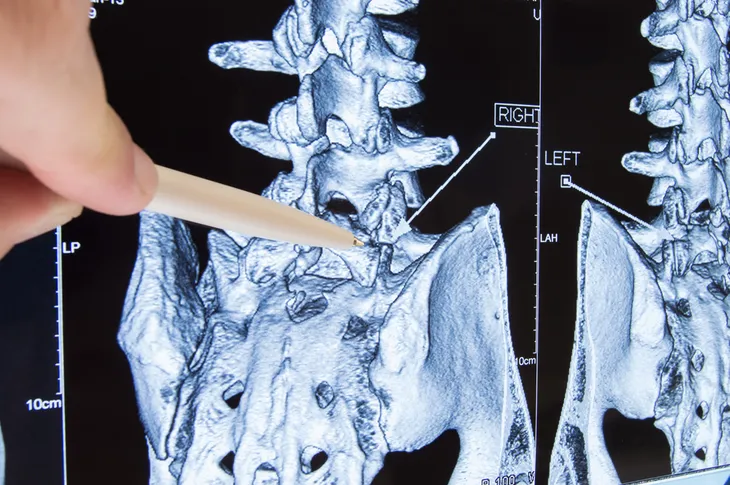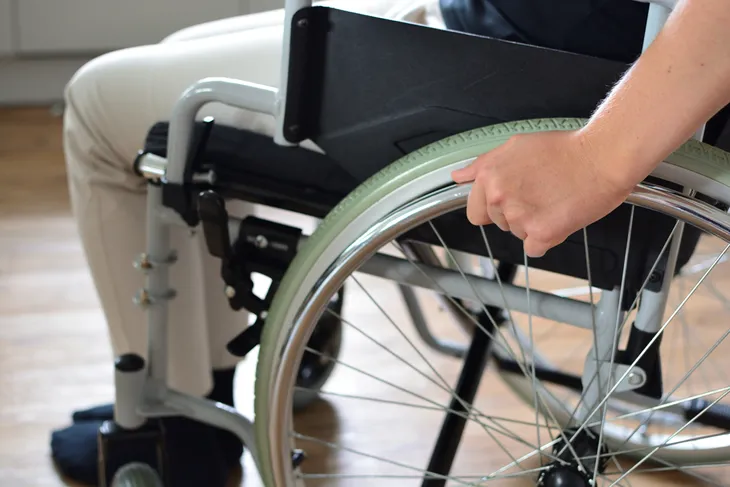Paresthesia is the medical term for the pins and needles numbing that many experience on occasion. People will often refer to this as their arm or leg having ‘fallen asleep.’
While this sensation most often occurs because of pressure put on a nerve, it is typically temporary and does not require any medical treatment. If the numbness persists, however, it may be an indication of an underlying medical condition. Below are eight common reasons for experiencing chronic paresthesia.
1. Radiculopathy
Chronic paresthesia is often a sign of nerve damage. One type of nerve damage is radiculopathy, which, according to Healthline.com, is “a condition in which nerve roots become compressed, irritated, or inflamed.”
One of the most common causes of radiculopathy is a herniated disk, which applies pressure to a nerve, causing the numbing sensation. Other possible causes include a narrowing of the canal that send signals from the spinal cord to other areas of the body, as well as a tumor or other mass in the spinal cord.
2. Hyperglycemia
Hyperglycemia, otherwise known as high blood sugar, is another common cause of paresthesia. If experienced for a prolonged period of time, hyperglycemia can cause damage to the peripheral nerves.
This nerve damage then leads to a condition called diabetic neuropathy, which can cause mild symptoms such as ‘pins and needles’ tingling or, more seriously, permanent numbness or paralysis. According to the American Diabetes Association, “about half of all people with diabetes have some form of nerve damage.”
3. Carpal Tunnel Syndrome
When the median nerve—which runs from the forearm and into the hand—is compressed or irritated, carpal tunnel syndrome may result. There are a variety of risk factors for this condition, such as diabetes, obesity and repetitive motions.
As the median nerve provides sensation to the palm side of the thumb and fingers, as well as motor function to the base of the thumb, experiencing persistent paresthesia in these areas may be an indication of carpal tunnel syndrome.
4. Multiple Sclerosis
Chronic paresthesia may also be an indication of Multiple Sclerosis. According to the National Multiple Sclerosis Society, numbness in the face, body or arms and legs is one of the earliest and most common symptoms of the disease.
The source adds that “the numbness may be mild or so severe that it interferes with the ability to use the affected body part,” such as the ability to walk, write or hold objects.
5. Fibromyalgia
Paresthesia is also a symptom of fibromyalgia, a medical condition that is characterized by chronic pain and heightened sensitivity to pressure. EverydayHealth.com says that paresthesia in those with fibromyalgia is often related to anxiety and nervousness about the disease.
The source adds that paresthesia can lead to acroparesthesia, “a tingling in the hands and feet from lack of carbon dioxide,” and that stress relief techniques and exercise may be beneficial for treatment.
6. Alcoholism
If chronically abused, alcohol can lead to another type of neuropathy called alcoholic neuropathy or alcoholic polyneuropathy. As with diabetic neuropathy, alcoholic neuropathy can have severe long-term complications, such as “disability, chronic pain and damage to the hands and feet,” says Livestrong.com.
Numbness in the extremities is caused by damage to the nerves, which “can impair the body’s ability to detect sensation,” resulting in the ‘pins and needles’ feeling. The source adds that pain in the arms and legs is another common symptom of this disease.
7. Hypothyroidism
According to the Mayo Clinic, hypothyroidism is “a condition in which your thyroid gland doesn’t produce enough thyroid hormone.” If the case is severe enough and left untreated for a prolonged period of time, hypothyroidism can cause peripheral neuropathy.
Peripheral neuropathy is damage to the nerves “that carry information to and from your brain and spinal cord (central nervous system) and the rest of your body, such as your arms and legs.” In those with hypothyroidism, it can occur due to fluid retention in the tissues, which then puts pressure on the nerves.
8. Lyme Disease
In cases where Lyme disease is left untreated, The Foundation for Peripheral Neuropathy says it can result in “pain, numbness or weakness in the limbs” associated with peripheral neuropathy. It may also lead to an inability to move one or both sides of the face.
The source adds that peripheral neuropathy “typically develops weeks, months or years later,” occurring in the third stage of severity for Lyme disease.











